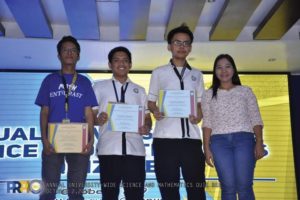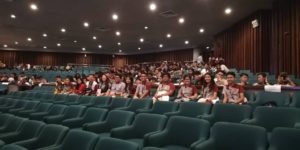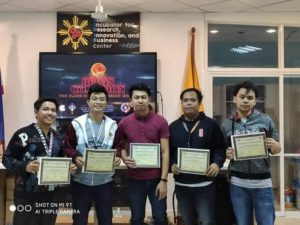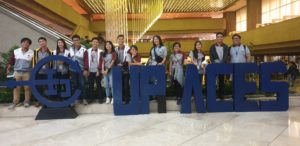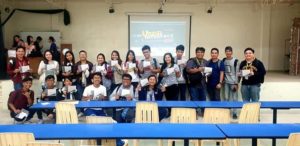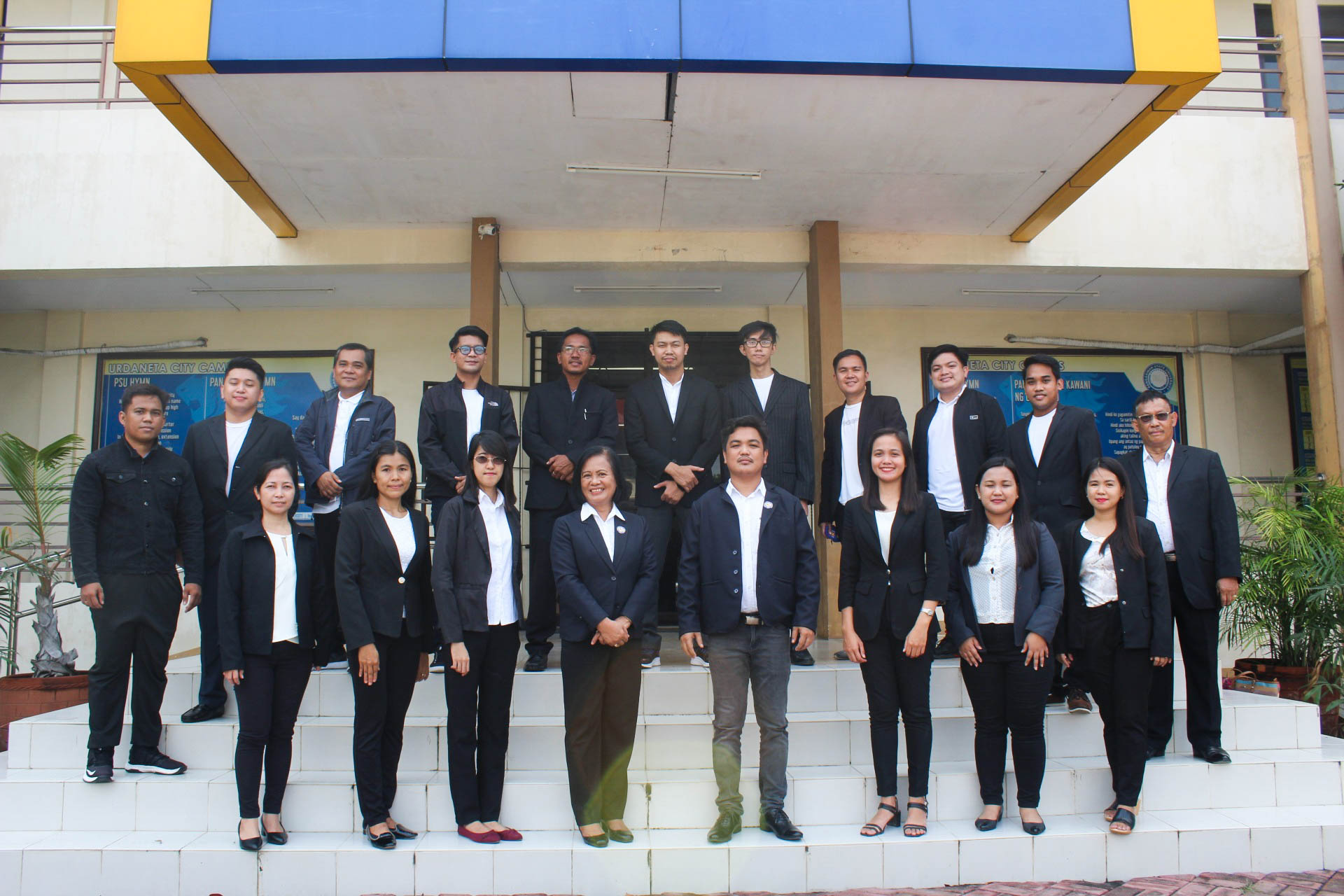
Welcome to Civil Engineering Department. We invite you to explore our webpage and discover what the Civil Engineering Department can do for you.
The Civil Engineering Department vows to serve its clients by giving the best education that every student deserves. Here in the department, the students are honed by dedicated and committed faculty into professionals ready to enter the job market.
Civil Engineering is one of the pioneer programs in the Urdaneta Campus. The department of Civil Engineering had a humble beginning. But it did not take much longer to attract students from every corner of Pangasinan, especially in the Eastern part of the Province. The department saw an influx of enrollees, a development the we never foresaw. Currently, the department remains to have the highest number of students.
For some years now, the department consistently produces board passers – an achievement that resounds all over the country. This inspires faculty members of the department to give their best, for they believe that every student deserves quality education.
Through thick and thin, the Civil Engineering Department will live up to the noble endeavors of the University, and it vows to be of service to the community.
Accreditation Status: AACCUP LEVEL II Re-accredited
THINGS WE DO BEST
|
Civil Engineering Licensure Examination Result |
||||||
| Month-Year | National Passing Percentage | Pangasinan State University (PSU) Passing Percentage | ||||
| No. of Passers | No. of Takers | Percentage | No. of Passers | No. of Takers | Percentage | |
| May 2015 | 1,361 | 4,311 | 31.57% | 1 | 5 | 20.00% |
| Nov 2015 | 3,935 | 9,482 | 41.50% | 57 | 78 | 73.08% |
| May 2016 | 2,245 | 5,882 | 38.17% | 12 | 22 | 54.55% |
| Nov 2016 | 5,036 | 10,972 | 45.90% | 48 | 56 | 85.71% |
| May 2017 | 2,514 | 6,998 | 35.92% | 3 | 12 | 25.00% |
| Nov 2017 | 6,075 | 12,447 | 48.81% | 34 | 52 | 65.38% |
| May 2018 | 2,738 | 7,599 | 36.03% | 15 | 29 | 51.72% |
| Nov 2018 | 6,262 | 13,887 | 45.09% | 43 | 71 | 60.56% |
| May 2019 | 3,372 | 8,855 | 38.08% | 9 | 17 | 52.94% |
| Nov 2019 | 6,510 | 15,075 | 43.18% | 54 | 70 | 77.14% |
| Nov 2021 | 2,374 | 6,474 | 36.67% | 18 | 22 | 81.82% |
| May 2022 | 5,836 | 13,781 | 42.35% | 67 | 91 | 73.63% |
Note: Schedule of Licensure examination for year 2020 was postponed due to COVID 19 pandemic.
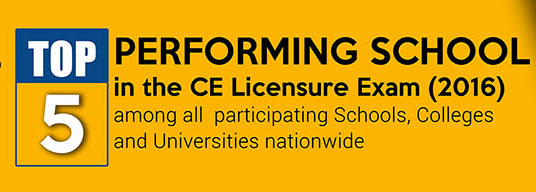

Organizational Chart
EMPLOYMENT OPPORTUNITIES
- Water Engineer
- Building Services Engineer
- Engineering Geologist
- Geotechnical Engineer
- Design Engineer
- Nuclear Engineer
- Site Engineer
- Structural Engineer
- Building control surveyor
- CAD technician
- Consulting Civil Engineer
- Contracting Civil Engineer
Three to five years after graduation, the graduates of civil engineering program should have:
- Possessed essential and fundamental civil engineering knowledge and skills that make them confident to work as a civil engineer in local, national, and international work environment.
- Engaged in professional career through ethical, moral behavior and global competencies.
- Assumed managerial and leadership roles in their organizations and multi-sectoral communities.
- Exhibited life-long learning through relevant and comprehensive continuous professional and development programs.
- Pursued graduate program and engage in academic and research careers.
- Engaged in an economic enterprise related to the profession.
|
GRADUATE ATTRIBUTES |
PROGRAM OUTCOMES |
PERFORMANCE INDICATORS |
|
People’s Champion
Continuous-Innovative Learner
Community Developer |
PO 1. Demonstrate through institutional mechanisms, systems, policies, and processes which Pare reflective of transparency, equity, participatory decision making, and accountability – ILO |
· Follow the Engineering and Architecture laws and code of ethics. · Perform given tasks with adherence to professional and ethical standards. · Demonstrate commitment to teamwork while working with others in multidisciplinary teams |
|
PO 2. Engage in relevant, comprehensive, and sustainable development initiatives through multiple perspectives in decisions and actions that build personal and professional credibility and integrity. – ILO |
· Obtain knowledge and information which focuses on how global, economic, environmental, and social issues impact the design of an engineering and Architecture project. · Active membership in professional organization and active participations in the various activities relating to the Engineering and Architecture Profession. § Perform given tasks with adherence to professional and ethical standards. |
|
|
|
PO 3. Set challenging goals and tasks with determination and sense of urgency which provide continuous improvement and producing quality outputs leading to inclusive growth. – ILO |
· Propose and defend an engineering and architecture project. · Defend the impact of the proposed project in a global, economic, environmental, and societal context. · Allocate time for personal and professional development thru participation in technical seminars and workshops, read engineering materials regularly, and engage in engineering research and pursue graduate studies. · Active membership in professional organization and active participations in the various activities relating to the engineering and architecture profession. · Recognize the need in life-long learning and to engage in continuing professional development of engineering skills locally or globally through participation in conferences, seminars, workshops and self-study. |
|
PO 4. Exhibit life-long learning and global competency proficiency in communication skills, inter/interpersonal skills, entrepreneurial skills, innovative mindset, research and production initiatives and capability in meeting the industry requirements of local, ASEAN and international human capital market through relevant and comprehensive programs.- ILO |
· Obtain knowledge and information which focuses on how global, economic, environmental, and social issues impact the design of an engineering project. · Recognize the need in life-long learning and to engage in continuing professional development of engineering skills locally or globally through participation in conferences, seminars, workshops and self-study. · Active membership in professional organization and active participations in the various activities relating to the Engineering profession. |
|
|
PO 5. Display, socially and environmentally responsive organizational culture, which ensures higher productivity among the university constituents and elevate the welfare of the multi-sectoral communities. – ILO |
· Design solutions for complex engineering problems and design systems, components or processes that meet specified needs with appropriate consideration for public health and safety, cultural, societal and environmental considerations. · Active membership in professional organization and active participations in the various activities relating to the engineering profession. § Demonstrate commitment to teamwork while working with others in multidisciplinary teams |
|
|
PO 6. Practice spiritual values and morally upright behavior which promote and inspire greater harmony to project a credible public image.- ILO |
· Be familiar with the code of ethics for engineers and apply and behave according to this code of professional practice. · Perform given task with adherence to professional and ethical standards § Act professionally and ethically and recognize the impact of liability issues in engineering projects that upholds the dignity of the engineering profession |
|
|
|
PO 7. Graduates of State Universities and Colleges and Local Universities and Colleges must, in addition, have the competencies to support “national, regional and local development plans”.(RA 7722). (CMO 92, series 2017). – ILO |
· Apply professional and ethical responsibility (e.g., safety, environmental, legal, regulatory, intellectual property, project management, risk management). · Preserves the ethical and integrity of the Engineering and Architecture profession § Develop a sense of professional responsibility & leadership in a multidisciplinary setting. |
|
PO 8. Articulate and discuss the latest developments in the specific field of practice (PQF Level 6 Descriptor). |
· Adapt innovations which focuses on the social and global impact in the engineering industry. · Apply improvements in engineering and architecture practice. · Integrate developments through involvement in research and extension activities. |
|
|
PO 9. Effectively communicate orally and in writing using Mother Tongue, English and Filipino. |
· Discuss professional oral and written presentation effectively. · Express engineering and architecture ideas orally through written means. § Propose and defend engineering and architecture projects |
|
|
PO 10. Work effectively and independently in multi-disciplinary and multi-cultural teams (PQF Level 6 Descriptor). |
· Demonstrate commitment to teamwork while working with others in multidisciplinary and multi-cultural teams · Perform effectively in multi-disciplinary projects and other areas of specialization. § Execute group works, experiments, and projects. |
|
|
PO 11. Act in recognition of professional, social, and ethical responsibility. |
· Apply professional and ethical responsibility (e.g., safety, environmental, legal, regulatory, intellectual property, project management, risk management). · Preserves the ethical and integrity of the Engineering and Architecture profession. § Develop a sense of professional responsibility and leadership in a multidisciplinary setting. |
|
|
PO 12. Preserve and promote “Filipino historical and cultural heritage” (based on RA 7722) |
· Promote and apply environmental laws and regulations as provided by the National Building Code of the Philippines. · Incorporate multi-sectoral equality on design considerations § Ensure elevated welfare of university constituents in design practice for higher productivity. |
|
|
|
PO 13. Contribute to the generation of new knowledge by participating in various research and development projects. |
· Involve in engineering and architecture technical research studies to develop personal growth. · Engage in various development projects to augment professional knowledge in the field of specialization. · Demonstrate new ideas by utilizing the new software and technologies. |
|
People’s Champion
Continuous-Innovative Learner
Community Developer |
PO a. Solve complex engineering problems by applying knowledge of mathematics and science |
· Analyze engineering problems using mathematics and conceptual framework. · Apply fundamental concepts and theories of science in solving engineering problems. § Execute mathematics and civil engineering calculations and analysis. |
|
PO b. Design and conduct experiments as well as to analyze and interpret data |
· Conduct experiments and testing utilizing the latest equipment and software. · Analyze and interpret results in the laboratory setting. § Analyze and interpret data and use engineering judgement in drawing conclusions to articulate civil engineering ideas or problems through drawings or diagrams effectively. |
|
|
PO c. Design a system component or process to meet desired needs within realistic constraints in accordance with standards |
· Design structures which conform with the National Structural Code of the Philippines (NSCP) and National Building Code. · Design the evaluation of structures to determine its risks during flood and earthquake. § Perform risk assessment of structures to address future problems to have sustainable environment. |
|
|
PO d. Function in multi-disciplinary and multi-cultural teams. |
· Demonstrate commitment to teamwork while working with others in multidisciplinary and multi-cultural teams · Function effectively in multi-disciplinary projects and civil engineering areas. · Engage in group works, experiments, and projects. |
|
|
PO e. Identify, formulate and solve complex problems in Civil Engineering |
· Assess engineering calculations manually and by use of applicable software. · Apply proper and accurate transformations of science and engineering problems into solvable mathematical models. · Apply academic theory into civil engineering proposals to solve engineering problems · Solve problem using engineering methods, tools and instruments. |
|
|
PO f. Understand professional and ethical responsibility |
· Exemplify integrity, reliability, and professional commitment in every aspect of the civil engineering profession. · Demonstrate professional conduct by not engaging in any bias, prejudice, and conflict of interest act. · Can explain the Civil Engineering Code |
|
|
PO g. Communicate effectively; |
· Communicate professional oral and written presentations effectively. · Formulate civil engineering ideas orally and through written means effectively. |
|
|
PO h. Innovative engineering solutions that will bring impact in a global, economic, environmental, and societal context |
· Obtain knowledge and information which focuses on how global, economic, environmental, and social issues impact the design of a civil engineering project. · Research and construct engineering solutions to project studies related to economic, environmental, and societal context. · Analyze and apply civil engineering theories, latest technologies, and best practices as engineering solutions to project studies related to economic, environmental, and societal context. |
|
|
PO i. Engage in life-long learning and keep abreast with the developments in Civil Engineering; |
· Engage in technical research, extension programs, seminars, and workshops to develop personal growth and uplift professional development. · Active membership and participation in a professional organization relating to civil engineering profession. · Recognize the need of life-long learning and to engage in continuing professional development of engineering skills locally or globally through participation in conferences, seminars, workshops and self-study. |
|
|
PO j. Know contemporary issues
|
· Demonstrate peer-recognized expertise together with the ability to articulate that expertise and use it for contemporary issues in civil engineering projects. · Identify optimum systems capable of meeting the needs of construction industry in solving engineering problems. · Identify advanced engineering techniques and tools needed in civil engineering practice. |
|
|
PO k. Use techniques, skills, and modern engineering tools necessary for Civil Engineering practice |
· Illustrate appropriate software in civil engineering design · Perform engineering calculations by use of modern tools, equipment, software needed for engineering practice. · Utilize techniques and skills using modern engineering methods and tools needed in civil engineering practices. |
|
|
PO l. Know and understand engineering and management principles as a member and leader of a team, and to manage projects in a multidisciplinary environment |
· Apply fundamental concepts and theories of science in solving engineering problems. · Demonstrate commitment to teamwork while working with others in multidisciplinary teams |
|
|
|
PO m. Understand at least one specialized field of civil engineering practice |
· Evaluate the design of a complex system of a complex system o process, or evaluate the validity of newly created knowledge within a specialized area of civil engineering. |


